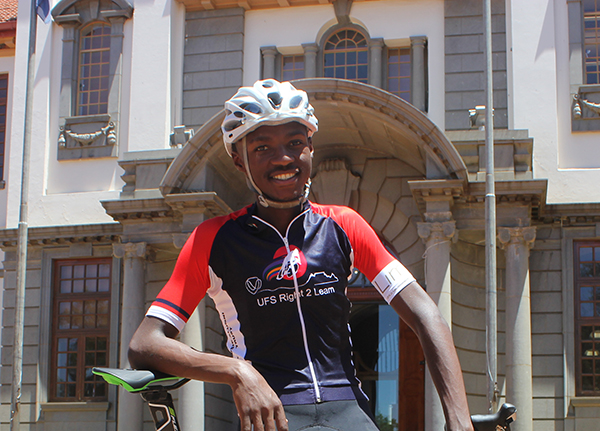Latest News Archive
Please select Category, Year, and then Month to display items
12 January 2024
|
Story Nonsindiswe Qwabe
|
Photo Sonia Small
 Since joining the UFS in 2008, Dr Grey Magaiza has worked extensively on approaches that can foster the socio-economic transformation of societies.
Since joining the UFS in 2008, Dr Grey Magaiza has worked extensively on approaches that can foster the socio-economic transformation of societies.
“The future should be one where communities can decide on their development agenda and futures. That’s the most important for me.” Dr Grey Magaiza, Deputy Director of the Centre for Gender and Africa Studies (CGAS) and Head of the Community Development programme on the Qwaqwa Campus, is passionate about capacitating communities to be agents of change and advancement. His vision for the future emphasises the empowerment of communities to take charge of their development by actively participating in decision making and the implementation of development projects that can improve their lives.
Since joining the UFS in 2008, Dr Magaiza has worked extensively on approaches that can foster the socio-economic transformation of societies. Over the years, he has crafted his research speciality into one that he is most proud of – being an interdisciplinary scientist immersed in the development of communities.
“I’m in a fortunate position of researching what I like. I say ‘fortunate’, because I’ve taken the time to understand what I’m passionate about, which is the overall field of rural livelihoods and livelihood futures – in short, community development. My research starts from an engaged university, understanding the elements that a university must use to enhance transformation and relevance to its immediate community in terms of development.”
One of the ways he has done this is by looking at social entrepreneurship as a development approach for young people in a rural setting. Through workshops with non-profit and civic organisations in Qwaqwa, Dr Magaiza has been helping these organisations to map out their needs and actively meet them through the involvement and support of external role players.
“We understand that communities are part of the national development agenda, but even that national agenda respects community knowledge and intentions and allows communities to shape their identity. A critical enabler of this is community organising. You bring back the capacity in communities to have dialogues on issues affecting them as spaces for engagement, knowledge exchange, and for people to just talk about their way forward.”
By enabling communities to define their development agenda, they can address their specific needs, challenges, and aspirations, he said. “When I look at livelihood futures, it’s quite an exciting aspect of my work – it’s like looking into a fortune tellers’ globe, because you’re not deciding for communities what they should do, but the communities themselves take those decisions.”
Kovsies SRC President cycles to raise money for registration
2017-11-27

Asive Dlanjwa, Bloemfontein SRC President, will cycle to Cape Town to
raise money for the 2018 registrations.
Photo: Moeketsi Mogotsi
“When I came to the University of the Free State (UFS), all I had was a R50 note and I did not know how I was going to register.” This is what Bloemfontein Campus SRC President, Asive Dlanjwa, encountered when he arrived at the UFS. He says the biggest struggle for students is not having finances for registration at the beginning of the year.
R2 million to be raised for 2018 registration
It is for this reason that Dlanjwa will be partaking in the Right to Learn Cycle tour challenge from 27 November to 4 December 2017. The Student Representative Council (SRC), in partnership with Institutional Advancement, came up with this initiative to cycle from Bloemfontein to Cape Town in eight days in an effort to raise R2 million for 2018 registration.
Bringing hope to prospective students and their families
Dlanjwa says, “We want to give access to as many students as possible. This initiative is not only about the students, it’s about giving hope to their families and taking them out of poverty.” He recalls an incident where a student went to the SRC offices to seek help at the beginning of the year, with nothing but an identity document and the clothes he had on. The student had been sleeping at the Bloemfontein Tourism Centre because he had no money for accommodation and registration. “These are the types of cases that we have to deal with at the start of each year,” says Dlanjwa.
He urges the community to partner with them in ensuring that many students get access to higher education by donating money through the Give-n-gain page. Dlanjwa, joined by a few more guest cyclists, left Bloemfontein on Monday 27 November 2017 and are expected to arrive in Cape Town on Monday 4 December 2017.